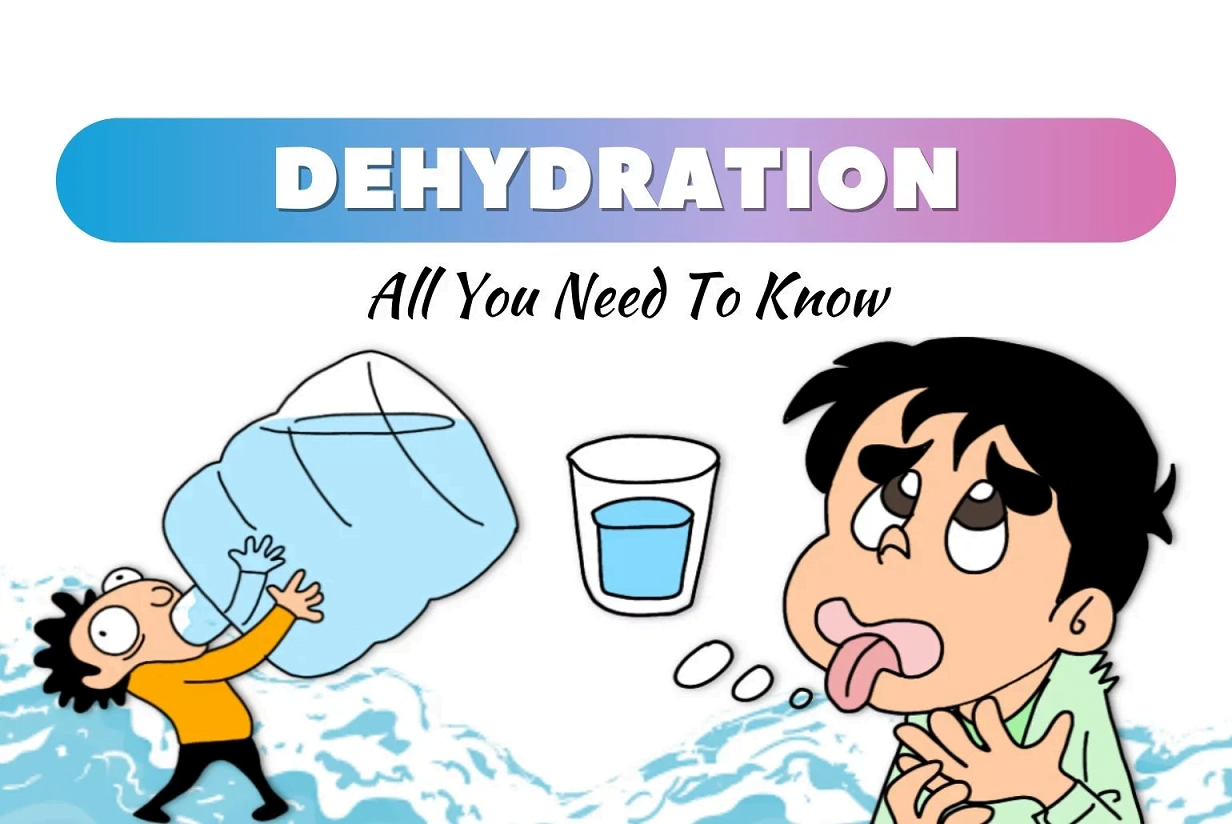
Reading Time: 2 minutes
Dehydration
Introduction
Water is often referred to as the elixir of life, and for a good reason. Proper hydration is essential for the healthy functioning of our bodies.
Unfortunately, dehydration remains a common but often underestimated issue.
Dehydration occurs when your body loses more fluids than it takes in, disrupting the balance necessary for optimal bodily functions.
This can happen for various reasons and can affect people of all ages.
Causes of Dehydration
Understanding why dehydration occurs is crucial:
- Inadequate Fluid Intake: Failing to drink enough water is the primary cause of dehydration.
- Excessive Fluid Loss: Sweating, urination, diarrhea, and vomiting can lead to significant fluid loss.
- Medical Conditions: Certain health conditions, such as diabetes and kidney disease, can increase the risk of dehydration.
Recognizing the Signs of Dehydration
Symptoms of Dehydration
Dehydration can manifest in various ways:
- Thirst: Feeling thirsty is the body’s way of signaling dehydration.
- Dry Mouth and Skin: Dryness in the mouth and skin is a common sign.
- Dark Urine: Dark yellow urine indicates dehydration.
- Fatigue: Dehydration can lead to feeling tired and sluggish.
- Dizziness and Headache: These symptoms often occur when you’re dehydrated.
The Effects of Dehydration
Short-term Effects
- Heat Exhaustion: Dehydration can lead to heat exhaustion, especially in hot weather.
- Kidney Stones: Concentrated urine can increase the risk of kidney stone formation.
- Cognitive Impairment: Dehydration can impair cognitive functions, affecting focus and memory.
Long-term Effects
- Kidney Damage: Chronic dehydration can harm the kidneys over time.
- Digestive Issues: It can lead to constipation and other digestive problems.
- Increased Infection Risk: Dehydration weakens the immune system, making you more susceptible to infections.
Preventing Dehydration
Staying Hydrated
- Daily Water Intake: Aim for at least 8-10 cups (64-80 ounces) of water per day, adjusting for activity level and climate.
- Hydrating Foods: Incorporate water-rich foods like fruits and vegetables into your diet.
Hydration Tips
- Listen to Your Body: Pay attention to thirst cues and drink water regularly.
- Stay Ahead of Physical Activity: Hydrate before, during, and after exercise.
- Monitor Urine Color: Light yellow urine indicates proper hydration.
- Avoid Excessive Alcohol and Caffeine: These can contribute to dehydration.
Dehydration Risks
Vulnerable Populations
- Children and Infants: Their small bodies are more prone to dehydration.
- Elderly: Aging can diminish the body’s ability to conserve water.
- Athletes: Vigorous exercise increases fluid loss, increasing the risk of dehydration.
Conclusion
Dehydration is a serious health concern that affects millions of people worldwide.
By recognizing its causes, symptoms, and effects, and by taking proactive steps to prevent it, you can ensure that you stay well-hydrated and maintain optimal health and well-being.
Remember, staying hydrated isn’t just about quenching your thirst; it’s about nourishing your body and safeguarding your health for a brighter and healthier future.
